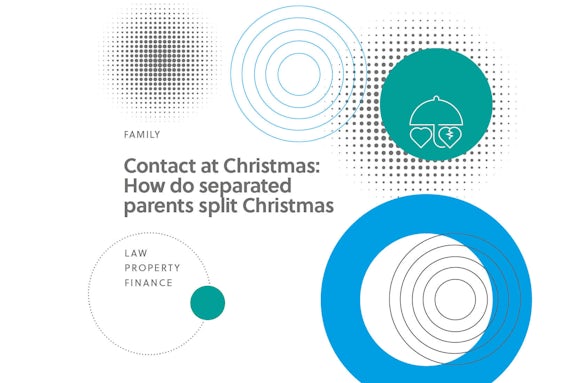
By Sarah Feeney
May 9, 2025

The festive season is (almost) upon us. One of questions that we are most frequently asked by parents who are separated, and trying to navigate the sometimes stormy seas of care arrangements, is what normally happens with children at Christmas?
There is no right answer to that question. Your family and friends might tell you what is normal, or what happened to them in a similar situation, but what works for one family may not work, for various reasons, for another. When considering any arrangements, the cross check is whether the arrangement is in the best interests of the children.
Christmas is perhaps the one time of year when, sometimes, the children themselves can become a bit forgotten about in the midst of parents’, wider family, and expectations of what Christmas should be. Indeed, for some parents (and other family members) the idea that they might not see their children on Christmas day is, understandably, difficult to come to terms with.
There are some propositions I would make that generally (but not always) apply:
In the event that you and your ex-partner cannot agree arrangements for Christmas between the two of you, there are a few options for you to explore before considering court intervention. Firstly, you might want to consider family mediation.
There are family lawyers who offer this service, but also organisations who operate under the banner of Relationship Scotland (https://www.relationships-scotland.org.uk/).
You might also want to consider contacting a family lawyer, who in the first instance should try to help you resolve the dispute in an expeditious and child focussed way. If all other attempts fail, then the final remedy is court, as a last resort. Practically speaking – and whilst it’s only November – the issue of Christmas contact is already one that is being canvassed in courts now.
A warning would be therefore that in the absence of an agreement, you should not rely upon the court being able to resolve this for you at last minute. If you have any questions do not hesitate to contact a member of our Family Law Team who would be happy to discuss your specific circumstances with you.
For more information please contact Edward Fitzgerald, email EFitzgerald@gilsongray.co.uk or telephone +44 (0)131 285 7842

Edward is a solicitor in our Family Law team. Having started his traineeship with Gilson Gray in September 2019 within the Family Team, Edward spent the remainder of his 2-year traineeship specialising in Family Law.